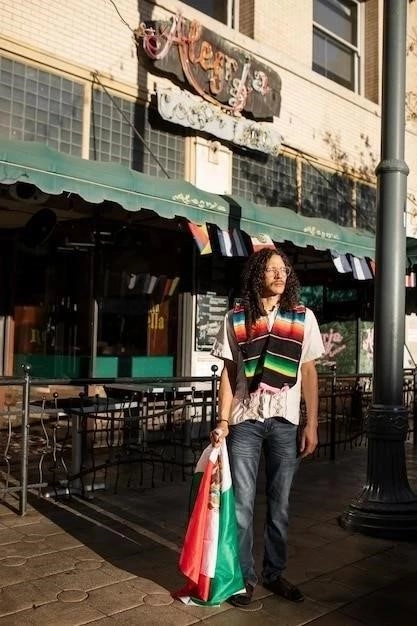A Culinary and Cultural Journey Through Harlem
Embark on an immersive exploration of Harlem, where history and culinary tradition intertwine. This vibrant neighborhood, renowned for its significant contributions to music, art, and cuisine, offers a captivating journey through its iconic landmarks and soul food establishments.
The Apollo Theater: A Beacon of Music and Entertainment
No journey through Harlem’s cultural landscape would be complete without experiencing the legendary Apollo Theater. Located on the famed 125th Street, this iconic venue has been a cornerstone of American music and entertainment for nearly a century. Since its inception in 1934, the Apollo has served as a springboard for countless renowned artists, solidifying its status as a hallowed hall of musical history.
The Apollo’s legacy is deeply intertwined with the rich tapestry of African American musical expression. It provided a platform for legendary artists such as Ella Fitzgerald, Billie Holiday, and Sarah Vaughan, who captivated audiences with their soulful voices during the Harlem Renaissance. The theater’s stage has witnessed the evolution of jazz, gospel, blues, and soul, showcasing the transformative power of music.
One of the Apollo’s most enduring legacies is its renowned Amateur Night, a competition that has launched the careers of numerous music icons, including The Jackson 5, James Brown, and Lauryn Hill. This weekly event embodies the spirit of opportunity and discovery that defines the Apollo, providing aspiring artists with a chance to showcase their talents on a global stage. The audience’s enthusiastic participation, with its tradition of cheering and booing, adds to the electric atmosphere, creating an unforgettable experience for performers and spectators alike.

The Studio Museum in Harlem: Celebrating Black Art and Culture
A cornerstone of Harlem’s cultural landscape, The Studio Museum stands as a testament to the artistic brilliance and creative innovation within the African diaspora. Since its founding in 1968, the museum has served as a vital platform for showcasing the works of both established and emerging artists of African descent, fostering dialogue, and promoting appreciation for the vast spectrum of Black artistic expression.
Housed in a beautifully renovated 19th-century building on West 125th Street, The Studio Museum boasts a dynamic collection of contemporary and modern art. Its galleries feature a diverse range of mediums, including painting, sculpture, photography, and mixed media, reflecting the multifaceted nature of Black artistic production. The museum’s commitment to showcasing emerging artists is evident in its renowned Artist-in-Residence program, which has nurtured the careers of countless acclaimed artists, providing them with invaluable studio space, mentorship, and exhibition opportunities.
Beyond its exhibitions, The Studio Museum is a vibrant community hub, offering a wide array of educational programs, workshops, and public events that engage audiences of all ages. From artist talks and panel discussions to film screenings and family programs, the museum fosters a welcoming and inclusive environment for exploring the complexities of Black art and culture. The Studio Museum in Harlem is not merely a repository of art but a living testament to the enduring power of creativity and its ability to inspire, challenge, and transform.

A Taste of Soul: Iconic Soul Food Establishments
Harlem’s culinary landscape is deeply intertwined with the soul food tradition, a cuisine that embodies the rich history, resilience, and cultural heritage of the African American community. A journey through Harlem’s soul food establishments is a sensory experience that transcends mere sustenance, offering a glimpse into the heart and soul of a neighborhood shaped by generations of culinary expertise.
These culinary institutions, often family-owned and operated for generations, have become pillars of the community, serving as gathering places where families and friends connect over plates piled high with comforting and flavorful dishes. The aroma of fried chicken, collard greens seasoned with smoked meats, and freshly baked cornbread wafts from their doors, beckoning both locals and visitors alike to partake in the soulful symphony of flavors.
Each dish tells a story, a testament to the ingenuity and resourcefulness of Black cooks who transformed humble ingredients into culinary masterpieces. From the tender, slow-cooked meats to the vibrant, flavorful side dishes, soul food is a celebration of tradition, family, and the power of food to nourish both body and soul. Prepare to embark on a culinary adventure that will tantalize your taste buds and leave you with a deeper appreciation for the cultural significance of Harlem’s iconic soul food establishments.
Sylvia’s Restaurant: A Harlem Institution
No exploration of Harlem’s soul food scene would be complete without a visit to Sylvia’s Restaurant, an iconic establishment that has been serving up Southern comfort food for over six decades. Founded in 1962 by Sylvia Woods, a South Carolina native known as the “Queen of Soul Food,” Sylvia’s has become synonymous with Harlem’s culinary heritage, drawing locals, celebrities, and tourists alike.
Stepping into Sylvia’s is like stepping back in time, with its warm, inviting atmosphere, checkered tablecloths, and walls adorned with photographs of notable patrons. The menu is a testament to Sylvia Woods’ commitment to serving authentic soul food classics, featuring dishes made with time-honored recipes passed down through generations. From their legendary fried chicken and barbecue ribs to their creamy macaroni and cheese and collard greens simmered with smoked turkey, every bite at Sylvia’s is a flavorful reminder of the restaurant’s enduring legacy.
Beyond its delectable cuisine, Sylvia’s is a community hub, a place where people from all walks of life gather to celebrate special occasions, share laughter, and savor the taste of home. Sylvia Woods’ vision of creating a welcoming space that nourished both body and soul continues to this day, making Sylvia’s Restaurant an indispensable part of the Harlem experience.
Red Rooster Harlem: Modern Soul Food with a Global Twist
For a contemporary take on soul food that reflects Harlem’s evolving culinary landscape, Red Rooster Harlem stands out as a must-visit destination. Helmed by renowned chef Marcus Samuelsson, Red Rooster seamlessly blends the traditions of Southern cooking with global influences, creating a vibrant and innovative dining experience.
Located in a beautifully restored brownstone on Lenox Avenue, Red Rooster’s ambiance is both chic and welcoming, reflecting the neighborhood’s vibrant energy. Samuelsson’s menu is a testament to his culinary prowess, showcasing the versatility of soul food while paying homage to its Southern roots. Classic dishes like shrimp and grits are elevated with unexpected twists, while global flavors shine through in dishes like Ethiopian spiced chicken and cornbread with tamarind butter.
Red Rooster’s commitment to community engagement is evident in its support of local artists and its dedication to sourcing ingredients from nearby farms. More than just a restaurant, Red Rooster serves as a cultural hub, hosting live music performances, art exhibitions, and community events that celebrate Harlem’s rich artistic heritage. A meal at Red Rooster is a culinary journey that celebrates the past while embracing the future of soul food.
Exploring Harlem’s Culinary Heritage: Beyond the Classics
While soul food undoubtedly holds a cherished place in Harlem’s culinary tapestry, the neighborhood’s gastronomic landscape extends far beyond these beloved classics. Harlem’s diverse population and rich history have fostered a vibrant and eclectic dining scene that reflects the neighborhood’s evolving cultural identity.
From cozy cafes serving artisanal coffee and pastries to upscale restaurants helmed by award-winning chefs, Harlem offers a culinary adventure for every palate and budget. Explore the flavors of the African diaspora at Senegalese restaurants offering savory thieboudienne (fish and rice) or savor the spicy complexities of Ethiopian cuisine at intimate injera houses. Caribbean flavors abound in Harlem, with Jamaican jerk chicken joints and Dominican eateries serving up hearty stews and flavorful rice dishes.
This culinary melting pot is a testament to Harlem’s enduring legacy as a gathering place for cultures from around the globe. As you venture beyond the classic soul food establishments, you’ll discover a world of flavors waiting to be explored, each bite offering a glimpse into the heart and soul of Harlem’s ever-evolving culinary heritage.

Harlem’s Vibrant Street Food Scene: A Fusion of Flavors
For a true taste of Harlem’s vibrant culinary spirit, one need only explore its bustling street food scene. From street corner vendors to food trucks parked along bustling avenues, Harlem’s streets come alive with a symphony of aromas and a kaleidoscope of flavors that reflect the neighborhood’s diverse cultural influences.
The scent of sizzling onions and peppers mingles with the smoky aroma of grilled meats, creating an irresistible invitation to indulge in a culinary adventure. Sample classic New York City street fare, like hot dogs piled high with tangy sauerkraut and spicy mustard, or savor the comforting flavors of halal chicken and rice, a staple of the city’s street food scene.
Harlem’s street food offerings extend beyond the familiar, offering a taste of global cuisines at every turn. Discover the savory flavors of Caribbean patties, filled with spicy beef or tender jerk chicken, or indulge in the sweet and savory combination of a Ghanaian peanut soup, a flavorful blend of peanuts, tomatoes, and spices. This fusion of flavors is a testament to Harlem’s legacy as a crossroads of cultures, where culinary traditions from around the world converge to create a truly unique and unforgettable dining experience.

The Enduring Legacy of Harlem: A Culinary and Cultural Hub
Harlem stands as a testament to the enduring power of culture, a neighborhood whose legacy is intricately woven with the threads of music, art, and cuisine. From the soul-stirring performances at the Apollo Theater to the vibrant colors and textures of artwork displayed in The Studio Museum, Harlem’s cultural contributions have left an indelible mark on the world.
The neighborhood’s soul food tradition, a testament to the resilience and ingenuity of the African American community, continues to nourish both body and soul, its iconic establishments serving as culinary landmarks that draw visitors from far and wide. Beyond the classics, Harlem’s culinary scene is a reflection of its ever-evolving identity, a melting pot of flavors that speaks to the neighborhood’s legacy as a gathering place for cultures from around the globe.
As you stroll along Harlem’s vibrant streets, savoring the aromas of street food vendors and the sounds of music spilling from local bars, you’ll experience the palpable energy of a neighborhood that continues to inspire and captivate. Harlem’s enduring legacy as a cultural and culinary hub is a reminder that the true essence of a place lies in the stories it tells, the flavors it shares, and the spirit it embodies.










